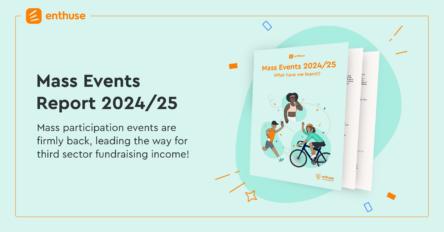
The online fundraising tech company, Charity Checkout, commissioned Maru/Usurv to carry out a survey of 1,000 members of the public and discovered that 57% of people are likely to ask a charity to delete all the personal information that they have on them after May 25th.
It was also revealed that 82% welcome the opportunity to ask a charity to delete any personal information they hold on them. This indicates that while the majority of people support the right to request their personal data to be deleted, some do not think they are likely to act on this right.
Chester Mojay-Sinclare, Founder and CEO of Charity Checkout stated: “At first glance, it seems like this data provides cause for alarm for the sector. However, the data also shows us that donors are more comfortable with sharing some items of personal information, than they are with others. We believe that if charities think carefully about what information they capture about their supporters and why, they can ensure their supporters remain on-side.”
The results show that the public are happy or indifferent about charities knowing certain aspects of their personal information, such as their employment status (74%), age (83%), and even home address (69%). However, donors are less willing to share some personal information such as personal income – which 59% would not be happy with a charity knowing. When charities ask for information that donors are not willing to share they increase the likelihood of the public asking for their information to be deleted altogether.
The survey also highlighted that 51% of the public don’t think that charities should store their personal information at all, and that 80% of people would like the option to donate anonymously online.
Chester added: “Charities need to be clear about both why they need to capture personal information and about how that data will be used to drive more tailored conversations. This includes asking for appropriate levels of donation, asking at the right time in the donor journey, and tailoring the frequency and type of communication to what the donor wants. This in turn fosters loyalty and trust with donors.“









